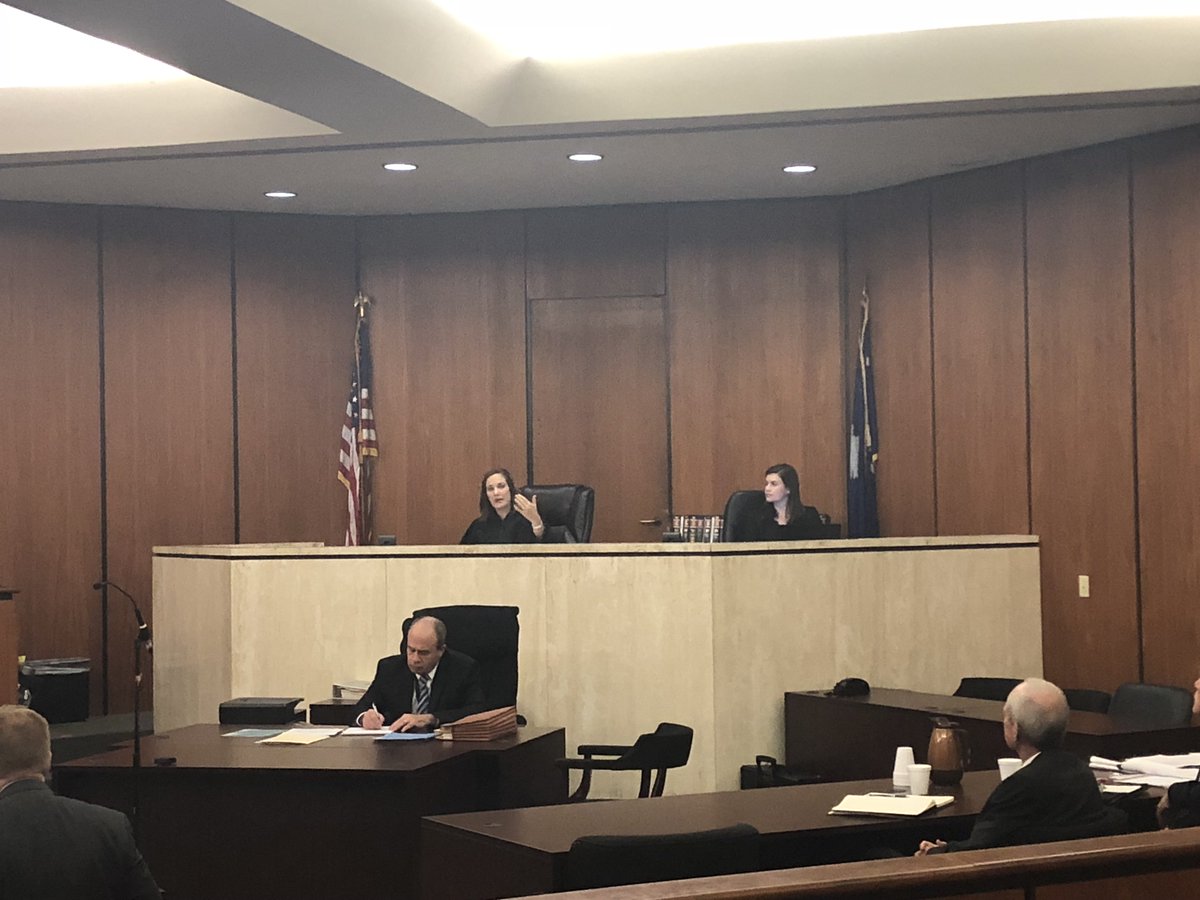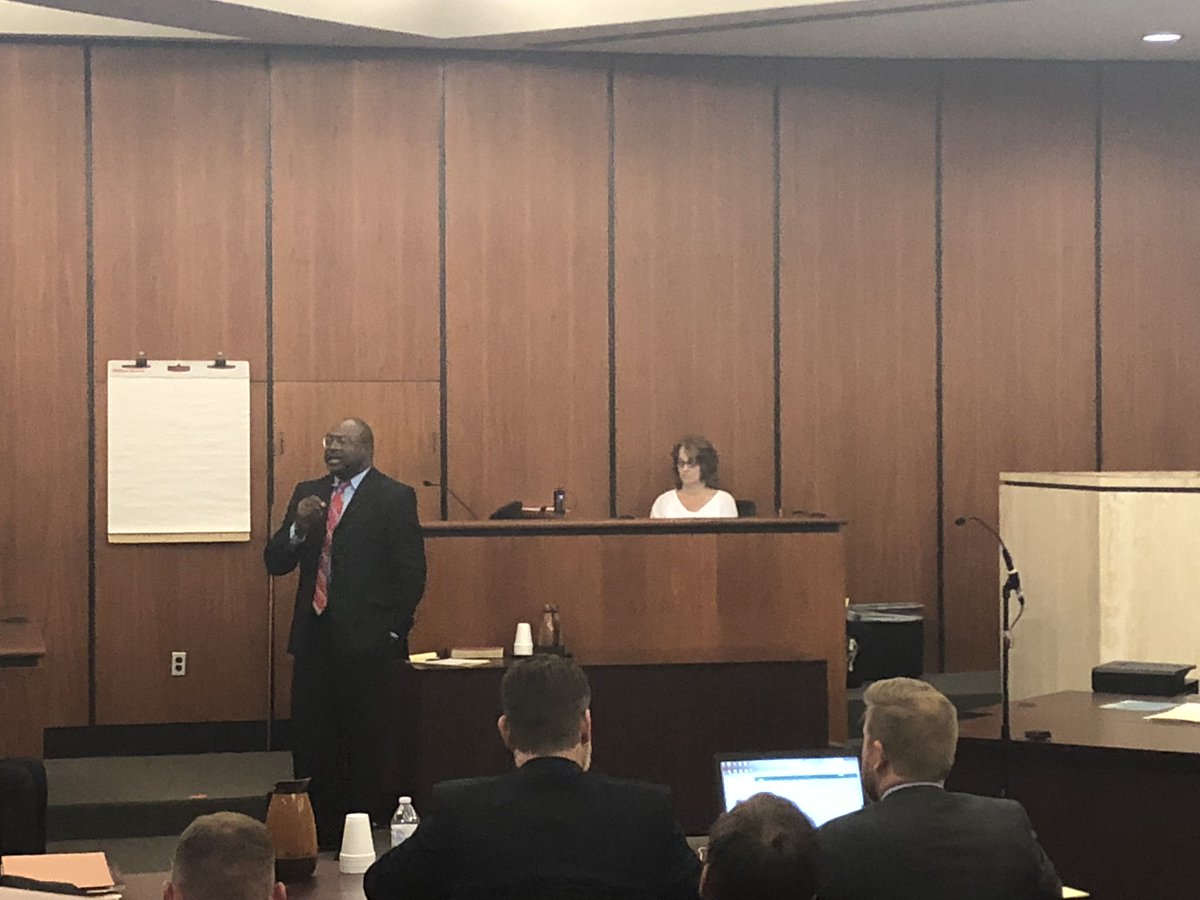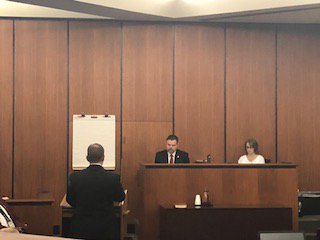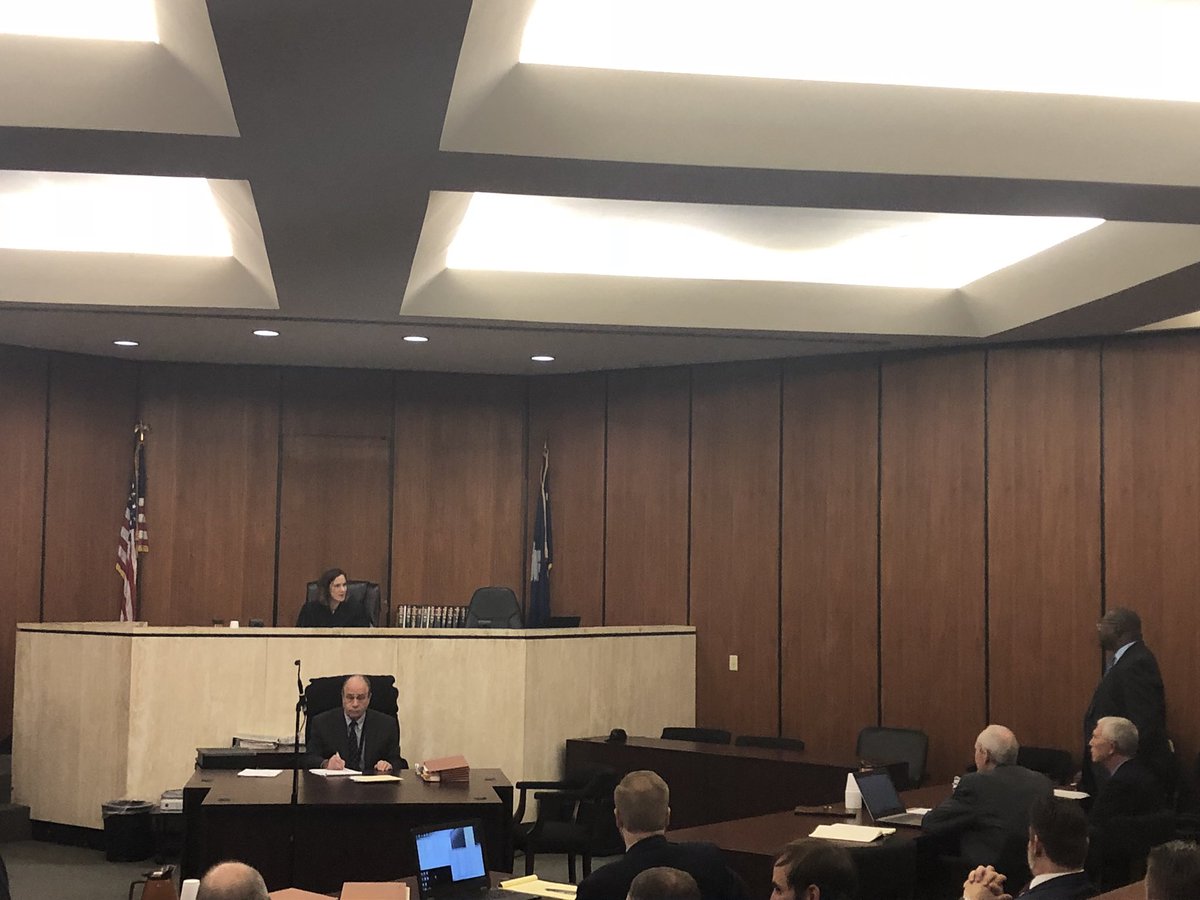Judge Carmen Mullen now presiding over trial of former Rep. Jim Harrison. He's charge with misconduct in office and perjury, among other things. Follow this thread for details and updates on the trial.
Solicitor David Pascoe opening up the trial. He explains to the jury that Harrison received roughly $900,000 from Richard Quinn & Associates over the course of his political career in the Statehouse. "Let him know that the laws he passed in the legislature apply to him too."
David Pascoe says his team of prosecutors will prove that Harrison's pay from Richard Quinn & Associates was based on what the political consulting firm was being paid by some of the state's largest corporations.
Pascoe says Harrison lied about what he actually did for Richard Quinn & Associates, which is why he's being brought up on perjury charges. "Public corruption begets lies," Pascoe said.
"Show me the man and I will find you the crime," Reggie Lloyd says. He's essentially arguing that prosecutors are inventing charges to fit their narrative.
"He never set out to create any scheme to get around the ethics law," Lloyd says of Harrison. The opening arguments are done. Now it's time for the witnesses.
Lt. Jeremy Smith with the State Law Enforcement Division is now testifying about how they discovered Harrison was paid by Richard Quinn & Associates. They found those records through a subpoena to the firm's bank.
Lawyers are arguing over whether the defense team can tell the jury that Harrison volunteered to take a polygraph test but the prosecutors never took him up on that. In response, special prosecutor David Pascoe says they should hook Harrison up to a polygraph right now.
Reggie Lloyd, Harrison’s attorney, is questioning the SLED agent about how much experience he has investigating public corruption cases.
It seems to be an attempt to discredit the financial evidence that shows Harrison was paid by Richard Quinn & Associates.
It seems to be an attempt to discredit the financial evidence that shows Harrison was paid by Richard Quinn & Associates.
The defense team is asking the lead SLED investigators whether they found any emails surfaced with Richard Quinn asking Jim Harrison to influence legislation.
The SLED agent says no. But there were emails about in-person meetings with Harrison and reps from SC corporations.
The SLED agent says no. But there were emails about in-person meetings with Harrison and reps from SC corporations.
The defense team asked whether there were contracts beteween corporations and RQA.
There were.
Did the contracts specify lobbying work for those corporations?
They did not.
There were.
Did the contracts specify lobbying work for those corporations?
They did not.
"Mr. Quinn advertised all of the legislators he had on his payroll. He put that out in his business pitch to lobbyist principals," says Lt. Jeremy Smith with the State Law Enforcement Division.
Defense team is now raising questions about why FBI interviewed Harrison along with SLED but didn't bring charges against him
They reference Operation Lost Trust, the earlier statehouse corruption probe in SC.
They are trying to raise doubt as to why feds didn't bring charges
They reference Operation Lost Trust, the earlier statehouse corruption probe in SC.
They are trying to raise doubt as to why feds didn't bring charges
Important point for this trial. In 1999, Jim Harrison told the SC House Ethics Committee -- run by fellow lawmakers -- that he was a partner and chief operating officer for Richard Quinn & Associates.
Defense is arguing that Harrison never actually acted as partner in RQA.
Defense is arguing that Harrison never actually acted as partner in RQA.
Jim Harrison listens on intently as his defense attorney cross examines the lead SLED agent who investigated whether he violated the state’s ethics law.
The defense is really getting bogged down in the SC Ethics Act. They are trying to argue that Harrison didn't have to report his connection to RQA in his statement for economic interest.
Here's a section of that law.
Here's a section of that law.

 Read on Twitter
Read on Twitter







